グローバルリーダー協会の齋藤です。
さて、ここからはRonさんがいすゞ自動車から日本の中小企業Unikaへ転職するときの話です。
いすゞではセールストレーニングの研修講師をしていましたが、Unikaでは営業を実践することになりました。
Chapter #15: TRANSITIONING FROM LARGE JAPANESE CORPORATION INTO A SMALL PRIVATELY HELD JAPANESE COMPANY
I left Isuzu Motors with a very nice retirement package, so for the short term, personal finances was not a major problem, and I had time to plan my next career step. Isuzu Motors offered me outplacement services, and I spent the next four months looking for my next position. I found the search very similar to what a truck sales person is involved in everyday looking for customers. I rather enjoyed it.
With the help of the outplacement consultant, we found a database of small companies needing a wide range of expertise in overseas operations. In Japan, much of the pure research, product development, marketing expertise and overseas projects are handled at the large corporation level. In most cases, the smaller companies only are support functions to those large corporations.
There are a few small though, privately owned companies, particularly companies with strength in production development and research, which get involved in overseas business directly. Also, some small companies have to purchase from overseas because their Japanese domestic operation is not viable in costs, and they have little product development expertise. Therefore, they purchase from overseas directly or for the more challenging, they start production operations overseas with strategic business partners or hiring employees from large corporations with the appropriate expertise.
This was the case of my next employer, as I had overseas sales expertise that they did not have. Their main plant was in Japan and had production in China and Vietnam with business partners and employees from other companies. Over time, they bought out their partners and started manufacturing exclusively for themselves, mostly domestic Japan. So, they gain some overseas production expertise, but no really overseas sales expertise.
Started working for Unika Company Limited in January, 2002. My function was to develop overseas markets as well as processing shipments of raw materials and finished goods between their three factories, the main factory in Iwate, Japan, a factory outside of Beijing, China and a factory in Ho Chi Minh, Vietnam. At that time, more than 95% of all products produced in China and Vietnam were exported to Japan and sold through the Unika sales network.
Interestingly, in all the 21 years in Isuzu Motors I never was allowed to get into direct sales. I never even processed the order of one truck. That isn’t to say I did not convince customers to buy though. Through the sales training and sometime presentations directly to truck fleet users, I did convince a customer that working with us is in their best interested. In one particular case, I did sales training for GM Chile for all their dealer sales people throughout the country. Before I returned to Japan, GM Chile placed a large order for truck for that market.
Therefore, when I came to Unika, I had a chance to prove to myself that all those years of sales training work not only in the automotive industry but any industry in which a presentation and relationship with the customer is required. In the case of Unika, the company is very small and the products are very small. That requires modification in the selling process, but only minor changes. Also, it makes the selling process much simpler and easier, as after sales service are supplying spare parts is a minor issue. Furthermore, if the customer doesn’t believe your product in good, you can simply give him one and have him test it in his own operation. You can only do that in very rare cases in the truck business and with very strict loaner conditions.
***************************************************************************************
齋藤信幸の生産財の営業はここ。
齋藤信幸のロングステイはここ。
***************************************************************************************
さて、ここからはRonさんがいすゞ自動車から日本の中小企業Unikaへ転職するときの話です。
いすゞではセールストレーニングの研修講師をしていましたが、Unikaでは営業を実践することになりました。
Chapter #15: TRANSITIONING FROM LARGE JAPANESE CORPORATION INTO A SMALL PRIVATELY HELD JAPANESE COMPANY
I left Isuzu Motors with a very nice retirement package, so for the short term, personal finances was not a major problem, and I had time to plan my next career step. Isuzu Motors offered me outplacement services, and I spent the next four months looking for my next position. I found the search very similar to what a truck sales person is involved in everyday looking for customers. I rather enjoyed it.
With the help of the outplacement consultant, we found a database of small companies needing a wide range of expertise in overseas operations. In Japan, much of the pure research, product development, marketing expertise and overseas projects are handled at the large corporation level. In most cases, the smaller companies only are support functions to those large corporations.
There are a few small though, privately owned companies, particularly companies with strength in production development and research, which get involved in overseas business directly. Also, some small companies have to purchase from overseas because their Japanese domestic operation is not viable in costs, and they have little product development expertise. Therefore, they purchase from overseas directly or for the more challenging, they start production operations overseas with strategic business partners or hiring employees from large corporations with the appropriate expertise.
This was the case of my next employer, as I had overseas sales expertise that they did not have. Their main plant was in Japan and had production in China and Vietnam with business partners and employees from other companies. Over time, they bought out their partners and started manufacturing exclusively for themselves, mostly domestic Japan. So, they gain some overseas production expertise, but no really overseas sales expertise.
Started working for Unika Company Limited in January, 2002. My function was to develop overseas markets as well as processing shipments of raw materials and finished goods between their three factories, the main factory in Iwate, Japan, a factory outside of Beijing, China and a factory in Ho Chi Minh, Vietnam. At that time, more than 95% of all products produced in China and Vietnam were exported to Japan and sold through the Unika sales network.
Interestingly, in all the 21 years in Isuzu Motors I never was allowed to get into direct sales. I never even processed the order of one truck. That isn’t to say I did not convince customers to buy though. Through the sales training and sometime presentations directly to truck fleet users, I did convince a customer that working with us is in their best interested. In one particular case, I did sales training for GM Chile for all their dealer sales people throughout the country. Before I returned to Japan, GM Chile placed a large order for truck for that market.
Therefore, when I came to Unika, I had a chance to prove to myself that all those years of sales training work not only in the automotive industry but any industry in which a presentation and relationship with the customer is required. In the case of Unika, the company is very small and the products are very small. That requires modification in the selling process, but only minor changes. Also, it makes the selling process much simpler and easier, as after sales service are supplying spare parts is a minor issue. Furthermore, if the customer doesn’t believe your product in good, you can simply give him one and have him test it in his own operation. You can only do that in very rare cases in the truck business and with very strict loaner conditions.
***************************************************************************************
齋藤信幸の生産財の営業はここ。
齋藤信幸のロングステイはここ。
***************************************************************************************












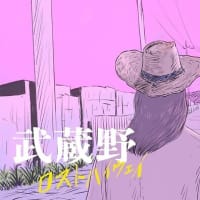
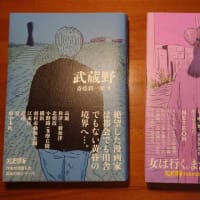

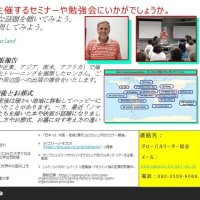

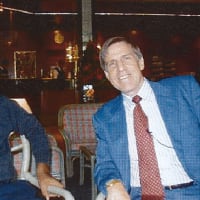
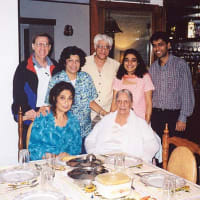
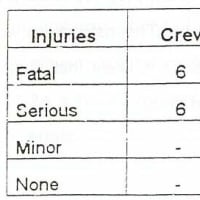

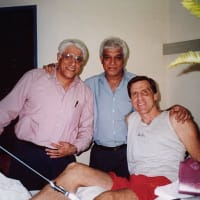






※コメント投稿者のブログIDはブログ作成者のみに通知されます